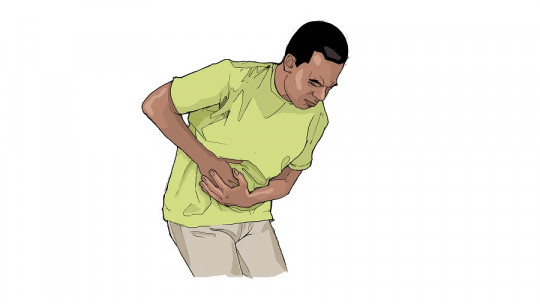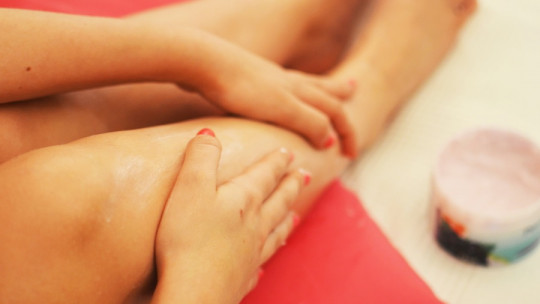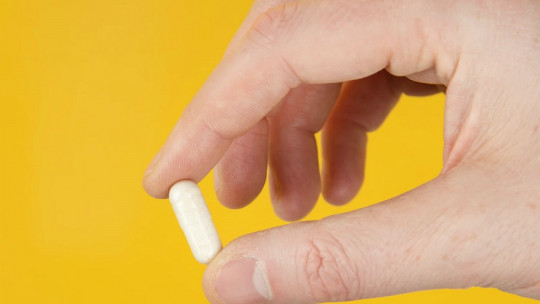All of us, at some point in our lives, have had a fever However, this does not have to be bad, which does not mean that sometimes we prefer not to have to suffer the discomfort caused by this rise in temperature, or risk it rising too much.
In this article we will see a series of natural remedies to reduce fever , easy solutions to apply from elements that we have available at home. They can be both activities and foods and drinks that, when entering the body through the digestive system, help the body recover and return to good health.
Of course, the doctor has the last word, who can provide personalized treatment adapted to the exact symptoms that each person presents; Unless a specialist gives you the go-ahead, he applies these remedies only if there is a slight fever and no other symptoms. In any other case, go to your health center.
What is fever?
Fever is not a disease, but a defense mechanism of the body and, therefore, It is related to the stimulation of the immune system, which causes an increase in body temperature to more than 38 °C When a person has a body temperature between 37 °C and 38 °C (taking into account the temperature indicated by an armpit thermometer, which shows a temperature one degree lower than the actual temperature), he or she is said to have a low-grade fever. that is, light or mild fever.
On the other hand, fever can appear due to the flu, an infection, inflammation, an illness, or due to various causes related to infectious processes. And in addition to hyperthermia, the person may experience tremors, chills, body pain, glassy eyes, and sometimes a feeling of cold.
Natural remedies and tips to reduce fever
When the fever appears, There are a series of natural remedies that we can apply so that body temperature decreases We will see them below, but yes, first ask yourself if it is really worth it to lower your fever; Sometimes, it is preferable to keep it for a while longer, to see how it evolves (this can give us clues about what disease is having an effect on the body) and in case the cause of this is a pathogenic agent of the class of bacteria. , this increase in temperature helps eliminate those harmful microbes.

Thus, the remedies to lower the temperature that you will find below, although they do not have the type of side effects typical of medications, as a general rule should be used only when the fever is relatively high, when it has not gone down for many hours, and /or when the fever causes discomfort (many times we do not feel significantly ill despite having some fever). And as always, the doctor has the last word. On the other hand, fever-reducing remedies rarely act on the root of the problem to which your body is reacting; They only provide relief from the symptoms and superficial aspects of the health problem.
Also keep in mind that if the fever is very high, medical intervention through the use of drugs indicated by the health professional handling the case has priority, because if the body temperature exceeds 39.5 °C this can harm the body, From 40 °C onwards, emergency medical attention must be received, and if the fever exceeds 42 °C, it is even capable of causing irreversible damage
Having said that, let’s move on to see the remedies for fever.
1. Fenugreek tea
Fenugreek tea or fenugreek infusion provides many benefits for the body : reduces hot flashes and menopausal symptoms, increases libido, is rich in minerals and vitamins and other estrogen-like compounds, and may help reduce fever. In this case, the seeds can be used directly, using two tablespoons of them with boiling water. Let it rest for 5 minutes, strain and consume at room temperature.
2. Cold water
Cold water has always been used to reduce fever. It is common for many people to place cloths wet with cold water on their forehead or the back of their neck. But you can also wet a sponge with cold water and moisten the areas of the armpits, feet, hands and groin. It is a good remedy when the fever is very high.
3. Warm water bath
Another widely used natural remedy is a warm water bath , as it helps relax the body. It is not advisable to shower when a person has fever and discomfort, since in these cases it is better for the person to be relaxed and in a resting position.
4. Hydrate more than usual
Drinking plenty of water and frequently is good to combat fever , since the body suffers dehydration when it fights against external agents. In this sense, drinking water is especially important when the person also has diarrhea or is vomiting.
5. Don’t eat a lot
It is good to eat something when the person has a fever; however, not in large quantities In these cases, vegetable soups are ideal to help the body recover and give it the nutrients it needs.
6. Lettuce tea
Staying hydrated is also possible thanks to teas , which can also provide many vitamins and minerals. One of the most suitable is lettuce tea, which contains potassium, calcium, magnesium, sodium and phosphorus. It is only necessary to boil a liter of water, and pour it into a container next to a whole lettuce. Let it rest for a quarter of an hour and add sweetener if necessary. Then it is ready to drink.
7. Hot garlic
Hot garlic can help lower body temperature, as it promotes sweating In this sense, it helps eliminate toxins and promotes recovery. This food has an antibacterial and antifungal effect, making it a great ally for the body to fight infections.
To benefit from this remedy, you can chop a clove of garlic and add it to a cup of hot water. Afterwards, let it rest for 10 minutes, strain and drink when ready. This remedy, however, is not recommended for pregnant women and young children.
8. Raisins
Raisins are also great allies of the body when it comes to fighting infections and reduce high body temperature when fever occurs. They contain a large amount of phenolic phytonutrients that fight bacteria.
To reduce fever, you can drink a raisin drink. You only have to place 25 raisins in half a cup of water for an hour, until they soften and become soft. Afterwards, it is necessary to mash them in the same water and add lemon juice. Taking this 2 times a day is beneficial in reducing fever.
9. Don’t overdress
Although fever sometimes produces a feeling of cold, dressing warmly is not good to reduce it , as this contributes to increasing body temperature. Likewise, the person should wear light clothing and not cover themselves with a blanket unless it is really quite cold in that room.
10. Yarrow
Yarrow is a medicinal plant that is used to treat respiratory system problems , improve blood circulation, gastritis, menopause symptoms and menstrual pain. In the form of an infusion, it has a positive influence on reducing fever.
11. Sage tea
Another infusion that works very well when we have a fever is sage tea , which helps perspire and lowers fever. This drink is easy to prepare. You just have to place a few sage leaves in a cup of boiling water and let them sit for 10 minutes. You can add honey and lemon juice to increase its benefits.
12. Ginger
Thanks to ginger, the body releases heat and therefore reduces fever This substance is a natural antiviral and benefits the immune system. Ginger can be drunk as an infusion or you can make a bath with ginger powder. When the bathtub is full, simply add the ginger powder and oil and let it sit for 10 minutes before taking a 10-minute bath.
13. Egg white
Egg white, although many are unaware of it, also helps reduce fever Due to its viscosity, it acts as a cool gel that absorbs heat. Apparently, if you wet a paper towel with previously beaten egg whites and place it on your feet (with the sock on top to keep it in place), it acts as a layer of fat that absorbs body heat and reduces fever.
14. Avoid unnecessary physical efforts
Finally, it is important to understand that health comes first and as long as the fever continues to cause problems, the rest can wait. Spending energy on tasks that are not truly urgent will weaken the immune system’s ability to respond and it will make the fever take longer to go down (and delay the elimination of the pathogens that are attacking the body). Therefore, while you feel bad, dedicate yourself to tasks that are not stressful and that make it easier to enter a state of relaxation: reading, drawing, watching a movie, etc.
15. Don’t delay going to bed
When we have a fever, it is important to sleep as much as our body asks us to, even if that means devoting more hours to sleep than is usual for us. In the same way, we must avoid delaying the time to go to bed more than normal; The mental efforts involved in focusing our attention on various stimuli and tasks will make us more prone to headaches and make us feel bad in general; Don’t forget that the brain is one of the parts of the body that consumes the most resources.









